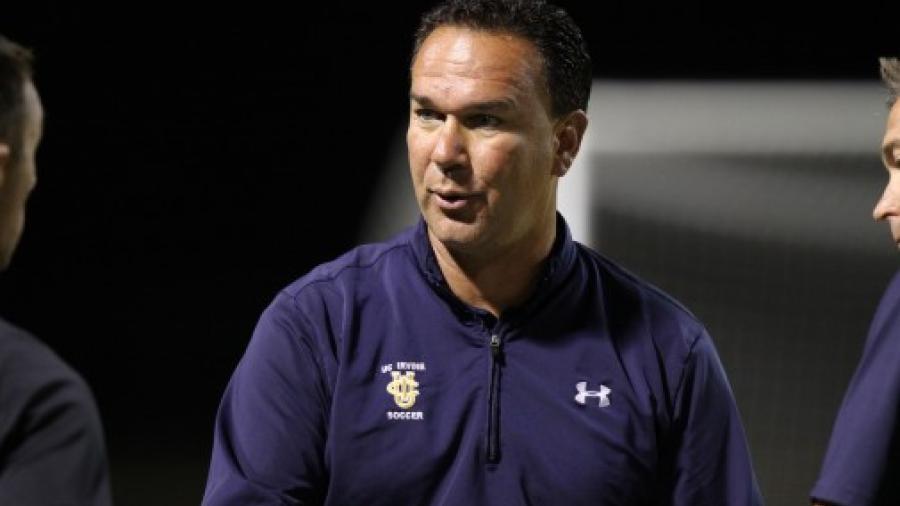Westmont Magazine Seeking Success for American Soccer

George Kuntz ’84 played soccer at Westmont for two seasons before a knee injury hobbled him. “I made a lot of long-term friends there,” he says. “It was one of the best things that happened in my life.” With three siblings in college at the same time, he moved home to Arizona to save money and graduated from Arizona State University. Friends and family talked him into coaching soccer since he couldn’t play, and he started as a volunteer for youth teams. George’s dad had played professional soccer in Mexico City and coached club teams throughout his life.
George began as a part-time soccer coach in 1988 at California Lutheran University in Thousand Oaks, Calif. Determined to succeed, he slept in his truck and showered on campus. The team won that first season, and the athletic director promised George a full-time job if he earned a graduate degree, so he completed a master’s in education at CLU. For five years, he taught four to five classes and coached men’s and women’s varsity and junior varsity teams. “It was a great experience because I was immersed,” George says. When both teams won national rankings, Pepperdine University offered him a full-time job coaching their women’s team. Drawn by the chance to work with an NCAA Division I team, George spent two years there. In 1994, he became the head coach of the men’s soccer team at UC Irvine. He finished his 17th season at UCI this fall, winning 15 games and the Big West regular season title.
“Each year’s been a learning curve for me,” George says. “I feel like I’m just getting started. I’m energized and blessed that administrators have stuck with me. In the last four years, we’ve competed at the Big West tournament three times, won the conference championship twice and gone to the NCAA Division I tournament three times.” See George’s many achievements at UCI at: ucirvine.prestosports.com/sports/m-soccer/mtt/kuntz_george00.html.
Despite his full-time coaching position, George continues to volunteer for youth soccer. This year, he accepted a national position, player development technical advisor, with American Youth Soccer Organization to lend his expertise to AYSO’s National Coaching Commission and expand its National Coaching Program. “I want to encourage more participation in soccer at the grass-roots level and provide the best possible training for coaches and players,” he says. “AYSO offers economically feasible soccer competition for families, reaching 600,000 youth each year.” George has also worked with the Hawaii Youth Soccer Organization for 10 years, advising coaches and the Olympic development program there. Certified at the highest level by United States Soccer Federation and the National Soccer Coaches Association, he urges all soccer coaches to continue their coaching education.
“American soccer players need to do better at the international and college levels,” he says. “Soccer is finding a place in U.S. culture. I’m proud that our young men have opportunities to play professionally. Beyond what they gain in the classroom and on the field, I hope they learn they can do anything they put their minds to. This year everyone thought we’d finish fourth, and we won. I like players who want to put in the effort — I want them to become good men, good people, good husbands and good employees.”
George has two children, a son, 10, and a daughter, 5. His son plays tennis, but George made sure to coach his daughter’s soccer team this fall.